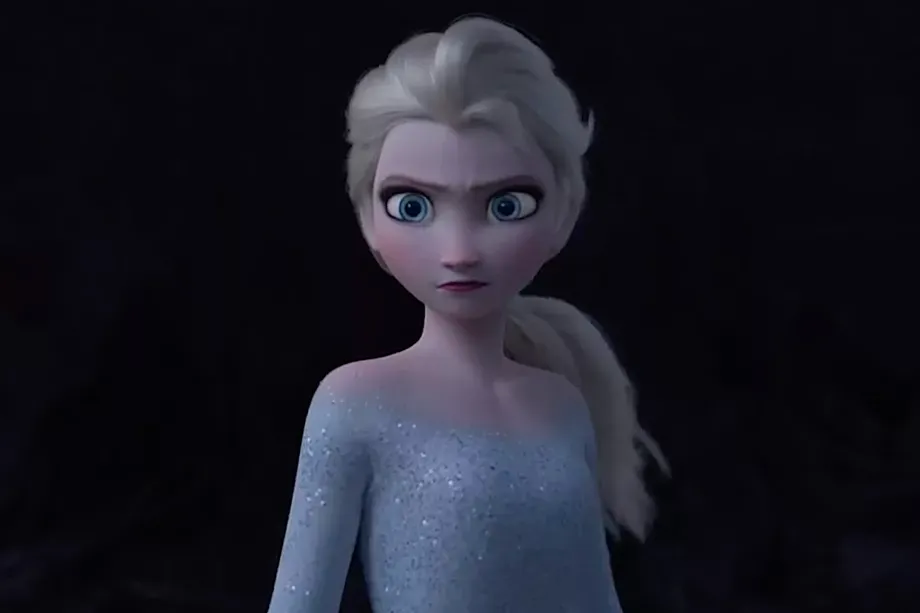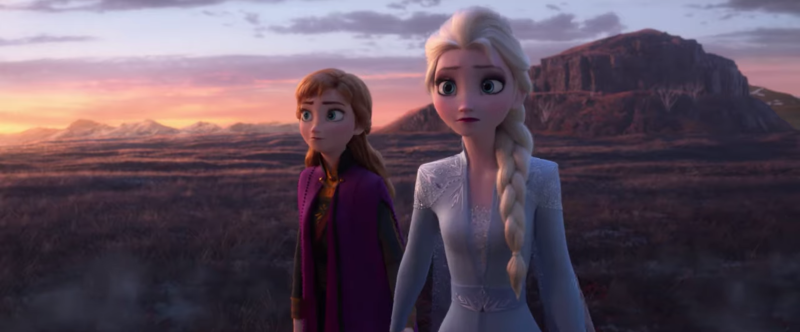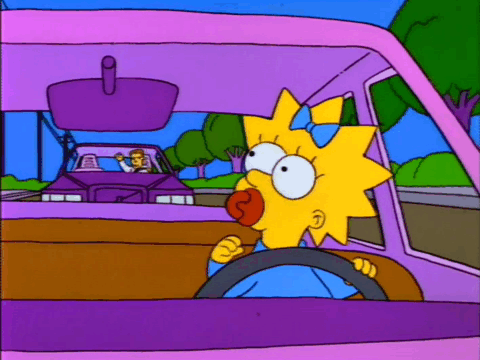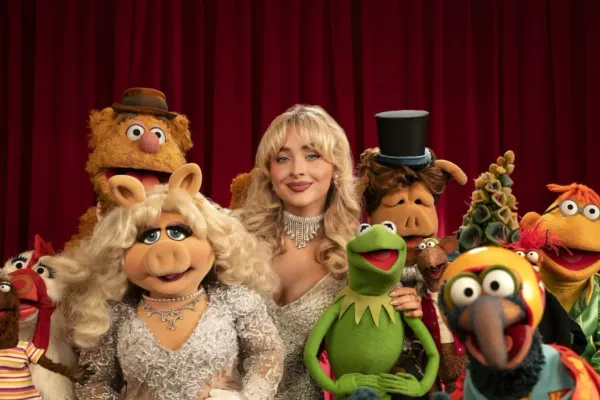I regret to inform you I am Elsa
This is now a Frozen fanzine

Several months into my adventures with hormone replacement therapy, I came to realize that my memory, which I had long been proud of for its steel trap qualities, had become an unreliable narrator when it came to the events of my own life. I was remembering some things differently and feeling with even greater pangs of longing the absence of memories that should be there.
Here. Consider a metaphor: If my mind were a bookshelf, you might find the shelf dedicated to Jane Austen and see that I had a gap between Persuasion and Sense and Sensibility and reasonably conclude that was where I typically kept my Pride and Prejudice.
Now, when I think about my childhood, I see gaps. I don’t have a memory of telling my parents I wanted to be a girl when I was young, but I have the space where that memory would go. I don’t know where I put that memory, but it’s not here any more, which makes me wonder if it even happened, even though when I think about the space where that memory should go, I feel a profound and terrible sense of loss. Something happened. What, I don’t know.
My path to embracing my own transness and my own womanhood took a long detour through the world of online trans erotica, which got me where I needed to go but only after a decade of distancing myself from my self. The existence of these sorts of stories — which follow a well-worn series of tropes, most revolving around men who are not sure they want to be women until they are forcibly convinced otherwise — is exhibit A in the “This is probably just a fetish!” defense for many trans people who have not yet come to terms with their identities, to say nothing of those who deny our basic right to self-definition. Indeed, I feel a little uneasy bringing these stories up, because they’re one of those elements of my community that I don’t know if mainstream culture would understand with the generosity they deserve.
But look to these stories with a more jaundiced and critical eye, and you’ll see they fall into two extremely broad types. The first (which never held as much appeal to me) involved the idea of womanhood as a terrible prison to be avoided. The second (which I loved) was all about exorcising the demons of a male upbringing in favor of a female one, at every stage of life.
Which is to say: There were so many princesses.

Early in Frozen 2, the blockbuster sequel to the 2013 animated smash, Queen Elsa (the one with the awesome blue dress, white-blonde hair, and ice powers) finds herself hearing a strange voice off in the wilderness, calling her toward it. She follows it, because of course she does, and what she finds will Change Everything. But the idea of hearing a voice you cannot ignore and simply must chase in order to figure things out has intense resonance with a whole bunch of queer identities but also and in particular for purposes of this newsletter trans feminine ones.
I was not a big fan of the original Frozen. Its big story turn felt arbitrary to me, and its tale of sisterly love, while original and unusual for the animated fairy tale genre, felt perfunctory. The bones of the story all but demanded that Elsa herself become the story’s villain and that her sister, Anna, be forced to climb a wintry mountain to save her sister through the power of love or something. But the movie never became that. Instead, we got a story that was trying to teach young girls 15 different lessons at once meant to puncture various portions of the “princess” idea now seen as insufficiently progressive, while also propping up the rest of the mythos in a way that would allow lots and lots of Anna and Elsa merch to be sold. (I don’t know if you’ve noticed, but the plan worked.)
But what I found most baffling was the idea of Elsa as a queer character, even subtextually. Yes, she isolates herself from society and finds herself in a palace made of ice, and yes, she doesn’t seem particularly interested in the attentions of male suitors, and yes, “Let It Go” is about how it feels the first time you shave your legs at 37 and realize how much better you like conforming to stereotypically feminine standards of beauty, but other than that. She’s also voiced by Idina Menzel, who sang “Defying Gravity” from Wicked, and as everybody knows, “Defying Gravity” is about the week before I came out publicly, when I peered over the edge of the canyon in front of me in hopes of finding a bridge to the other side. This is all to say: Elsa was queer in the way so many characters in these sorts of movies are queer — she was because enough people said it was so. And honestly, that’s enough most of the time.
Frozen 2 leans into the idea that Elsa might maybe possibly be a trans woman (or, okay, a cis lesbian, but one who is careful to note that she will date trans women with penises, before launching into an embarrassing paragraph about how what’s most attractive to her is the soul on Arundel Hookup dot com or whatever). But the movie is queer in the same way a box from IKEA is a couch — yes, in theory, you can get there, but you have to be willing to do the work. The movie teases, but it doesn’t confirm.
All of this doesn’t feel like a spoiler to me, because, well, what did any fans who longed for the Walt Disney corporation to alienate any number of potential viewers by making a character canonically gay expect? The company loves to make obscure Facebook churn websites mad about, say, a lesbian couple in the background of a Toy Story 4 shot, because that counts almost as free promotion. It doesn’t want to pick a war with Tucker Carlson doing a whole segment on his show about how THE LEFT thinks THE WIND is a LESBIAN. (The wind is totally a lesbian.)
Still, Elsa isn’t canonically queer, but she is queer. Frozen 2 might have backed off the symbolically potent depictions of a queer girl learning to trust her true self or (shiver) made Elsa canonically straight. But it does neither. It does lean in, insofar as a giant corporate product that has to appease Chinese censors and middle American megachurch goers can.
It’s this sense of outre danger in the otherwise safe confines of a Disney computer animated feature that gives the Frozen franchise its punch. In both films, there’s a vague sense that the characters are on the precipice of something bigger and more terrible than themselves. The movies always make sure that darkness stays in its place, the better to sell toys, but it flickers in the space between frames all the same. These movies are not particularly good; they speak to something inside of me old and powerful, something I can’t even name.
Recently, one of my good trans woman friends got a rude reply on Twitter where someone asked her if she was just trying to be a cis girl. To be sure: My friend is so fucking pretty. (If you knew her, you would not be able to stand it.) She can just do things like casually wear the Fleabag jumpsuit and smile coyly while saying, “Oh, this old thing?” She’s done that thing some of us do, where some combination of genetics and geography means that she is able to enter women’s spaces without having the twinge at the back of her brain that insists somebody might try to throw her out.
But also, like, my friend wears a lot of jumpsuits and drives a motorcycle and stuff. If she’s just trying to be a cis girl, then she’s specifically trying to be one who would inspire a Fountains of Wayne song. And really, my friend is just trying to be herself. If you talk to her for fifteen seconds, you will see this is just who she is. She woke up one day and had ice powers, if you will.
There is no one right or wrong way to be trans, just as there is no right or wrong way to be cis. But by the nature of human society, we trans folks all have weird and complicated relationships with cis society, no matter how much we try to reject it. But I think this is particularly true for those of us in the trans femme community who — because, yes, I am such an awful person — do want to eventually just sort of get to live the life of an incredibly boring cis woman.
I have a complicated relationship with this desire inside of myself, because society is actively set up to disadvantage trans folks. The second we scrape out a few legal protections for ourselves, even the last presidential nominee from the political party ostensibly on our side (if any party can be said to be on our side, because none of them really can) starts musing about if it’s all just gotten to be too much. In theory, what I should be doing is hammering away at the gender binary until it shatters into a million pieces, because it is restrictive and gross and unnecessary. It holds people from across the gender spectrum in bondage.
But I really like the gender binary? When somebody says I look pretty or calls me ma’am, I think that’s just great. The further I get into this little journey of mine, the more I get small tastes of just seeming to be a cis lady, and they’re enticing to me in a way that’s almost narcotic. When women — cis and trans — include me in the project of being themselves, I feel warm and welcome in a way I never have in my entire life, and I want more of it. I belong. I never did before. To shatter the gender binary is also to undo the space where I finally feel at home.
I am aware that “shatter the gender binary” doesn’t mean we’ll all start wearing vaguely androgynous jumpsuits and referring to each other exclusively by numbers. I am also aware that we can break down the most harmful offshoots of the gender binary and still provide spaces where women are allowed to congregate and support each other. I am aware that the fight for a better and more just world, one that is more welcoming to people from across an entire spectrum of gender and not just boring binary folks like me, is not necessarily in opposition to my desire to someday be a bridesmaid in somebody’s wedding. (This is a very odd and late-breaking desire I didn’t realize I had! Would you like me to be in your wedding? I will!)
But I think back to the trans erotica sites and remember that the stories that held the most power over me were often frightfully mundane. I loved one, in particular, about a 20something guy who was transformed into a teenage girl by a fellow teen girl with magical powers, and for most of the story, the two just became best friends. There was a plot about understanding the source of her magical powers and such, but for the most part, it was a sweet story about suddenly finding the friend you’ve always needed. It was about waking up with ice powers and deciding you didn’t know what they were but knew you could figure out what to do with them in time.

The princess archetype is often one of the first ways that young girls get to confront the totality of the limitations placed on women by our society, and the archetype shifts with each new generation of girls, who are asked to bear new burdens. Elsa and Anna are allowed greater autonomy, and Elsa gets to run an entire kingdom by the end of Frozen. But they are still expected to be tiny and conventionally attractive and to sing in brilliant soprano.
Trans girls don’t really get a princess archetype. The closest I came was Oz’s Princess Ozma, who was initially disguised as a boy, then transformed back into herself in a story that is simultaneously about trans issues, colonialism, and the gold standard, without really realizing it’s about any of those things. (To be clear: I love it.) But after being changed, Ozma just gets boring. All of the trans girls I know got more interesting after coming out, not less. (Sidebar to note that trans guys often claim Ozma as one of their own, too, and not without reason!)
(Additional sidebar: L. Frank Baum got one thing right about Ozma post-transition: The thing she’s most devoted to is her friendship with Dorothy, the only other human girl around her age she appears to know. She throws herself into this friendship with queasy abandon, and the few times I really loved Ozma in the later books never had to do with her being an impossible paragon of virtue and everything to do with her just being a normal tween girl with her super cool tween best friend.)
But we trans gals find our own princess archetypes anyway. The stories I used to read on the trans story sites were, after all, a kind of fairy tale, but at the end, the protagonist wasn’t revealed to be secret royalty (except, okay, in a lot of stories they were). At the end, the protagonist was revealed, instead, to be a secret cheerleader or sorority sister or bride. She was always there, waiting to burst through the surface and conform immediately to what capitalism imagined possible for the modern woman.
This, maybe, is why I found myself so keenly identifying with Elsa on my second voyage through the Frozen universe. She is a being of immense power who doesn’t understand herself at all, and she is only barely beginning to scratch the surface of what is possible. But in order to feel loved and whole, she has to squeeze herself into a box of herself. She is the most powerful being in the universe and also literally a product. I feel, now, like I can do absolutely anything, but what I most want to do is explore what it means to feel like I finally belong.
When watching Frozen 2, what felt most different to me from when I watched the first Frozen was how much more comfortable I was with understanding Elsa as queer coded when watching the movie, in a way that even my viewing companion (another trans woman!) didn’t quite buy when I tried to explain it to her. My journey has felt, a lot of the time, like it’s governed by fairy tale logic, as if I can only explain the truth about myself in the form of riddles and tortured metaphors. Elsa’s powers don’t make sense to her, but she’s still got them.
My womanhood makes no sense to me, but I’ve still got it. I ventured out into the wilderness, and I climbed a mountain, and I sang a power ballad, and when I came back down, I revealed myself to the world, and most people just shrugged about it. But the thing about having something is that you have it, even when it feels bigger than yourself. There’s a voice calling to me, but I’m still not sure what it’s trying to say.
Read me: Katelyn Burns’s beautifully searing story of a trans girl who really did figure her shit out at a young age — only for her father to push back with the backing of the Texas Republican Party — is one of the best things I’ve read all year, and it made me cry. Everything about this story touches something very deep and primal in myself.
In April 2017, Luna asked to be referred to by the name Luna. At age 5, Luna was diagnosed by a qualified professional therapist as having gender dysphoria, distress stemming from a mismatch between her birth sex and her gender identity. Her pediatrician noted that at both her 5-year and 6-year checkups, Luna presented as a girl and has been persistent in her gender identity throughout her childhood.
“The father doesn’t follow the recommendations of the counselor or the pediatrician, and he shames her to try to make her feel bad for wanting to dress as a girl,” Meaders, [Luna’s mother’s] attorney, told the court. “Even though the father knows she wants super-long hair, he shaves her head when he has the opportunity and leaves the other twin boy’s hair long,” referring to her twin brother Jude.
It is the hair-shaving detail that stands out as especially cruel to trans people and advocates. “Luna’s father has been very insistent on cutting her hair extremely short, and that is like one of my daughter’s biggest dysphoric points,” Jane, a Dallas-area mother of a trans kid who knows Luna (and whose name has been changed for this story) told Vox. “For her, all of this is about the fact that Luna is being forced to have short hair. She doesn’t understand all the other ramifications.”
Watch me: For as much as Frozen took over the world, Tangled was always the better 2010s Disney princess movie, and it’s frustrating to me that it’s been a little forgotten in the wake of Frozen mania. It’s available on Disney+, and its bittersweet and goofy take on the Rapunzel story is well worth checking out.
And another thing… Look, everybody! I made you this gif!!!!

This week’s reading music: “There’s a Revolution” by Got a Girl
Episodes is published once per week and is about whatever I feel like that particular week. Suggest topics for future installments via email or on Twitter. Read more of my work at Vox




